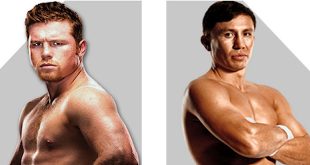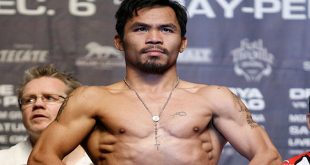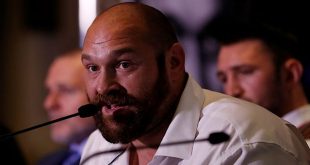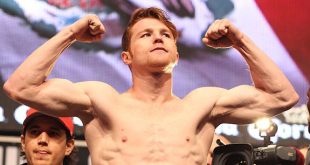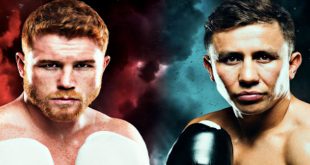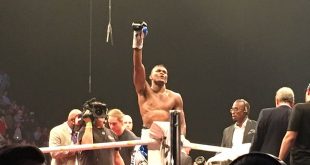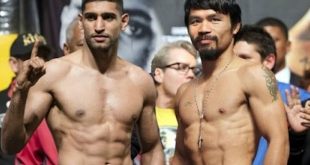| Puerto Rico has been the proud home of many boxing champions throughout history. From Sixto Escobar, to Carlos Ortiz and Jose “Chegui” Torres, to Wilfredo Benitez, Wifredo Gomez and a host of other champions in Puerto Rico’s heyday of boxing in the 1980’s, the torch has always been passed to up-and-coming new champions that each generation | 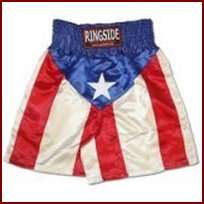 |
has idolized and revered. One of the greatest of all Puerto Rican champions to proudly represent the island in countless championship fights was Felix “Tito” Trinidad. In addition to his obvious talent and raw knockout power, Trinidad also became a Puerto Rican icon because of his contagious enthusiasm for the sport, his humble nature and his fierce pride in his homeland. In contrast to some of the trash-talking, arrogant fighters that exist today, Trinidad was a fighter who would come into every fight looking like he was having the time of his life. His happy demeanor and wildly exciting fighting style made it very easy for Puerto Ricans and boxing fans in general to become Trinidad fans. Overlooked in the beginning of his career, Trinidad made it impossible for anyone to overlook him as he began to accumulate wins over some very big names in boxing. He went on to a gloried, “Hall of Fame” career. Now Trinidad has retired, seemingly for good this time; and Puerto Ricans are left looking for the “heir apparent.” That title seems destined to fall upon Miguel Cotto.
It is not an enviable position, following in a superstar’s footsteps never is. Cotto has done his best to distance himself from these lofty expectations. He will repeatedly say the same thing: he does not seek to be “the next Trinidad,” but rather the first Miguel Cotto. It is a bit unfair to deposit such a large amount of pressure on a single pair of shoulders. But Puerto Ricans, hungry for “the next Tito,” are already expecting many great things from Cotto. Can he deliver? First, let’s examine both strictly as fighters.
Trinidad’s main asset was his power with both hands. Although people mostly mention the lethal left hook, Trinidad had knockout power in both hands. Early in his career, Trinidad had a propensity for suffering an early knockdown. Fans would cringe in their seats, expecting the worst. However, this quickly became a Trinidad “trademark,” to the point that some boxing commentators would say of an opponent: “oh, oh… he knocked Tito down. Now he is in trouble.” Trinidad would rise from the knockdown to knock out his opponent. Questions about Trinidad’s chin were somewhat put to rest after his epic fights, such as the one against Fernando Vargas, one of Trinidad’s greatest triumphs.
However, the enduring knock on Trinidad has been his inability to solve great boxing styles. His losses to Bernard Hopkins and Ronald “Winky” Wright, in addition to the first rounds of his fight versus Oscar de la Hoya, all exposed this inability. It was after the defeat to Wright that Trinidad retired once more.
Cotto, on the other hand, does not have the pure knockout power that Trinidad had. He relies mostly on an accumulation of punches to do the job. He does, however possess a big left hook to the body, which he uses very effectively. From a strictly technical standpoint, Cotto seems the more complete boxer. His boxing skills are better; his defense is better.
It is still early in Cotto’s career to pass judgment or compare his accomplishments to Trinidad’s. So far, however, there are some good early indications that Cotto just may be the next great Puerto Rican champion. For instance, he has already been in with some very good fighters, and has passed all tests with flying colors. Detractors point to his “spaghetti-legged” ordeal versus DeMarcus Corley, but fail to realize that many a great record built itself on learning experiences and close calls. An early dominant Cotto paid for his over-anxiousness in front of his home crowd, but hung on and recovered to TKO Corley in the fifth round, the mark of a true champion.
Now let’s examine both as personalities. As mentioned earlier, Trinidad was a charismatic champion. His beaming smile and childlike enthusiasm in the ring made fans of many of us. He represented his country with pride and dignity. Likewise, Miguel Cotto is also a classy individual. He expresses himself well in interviews and says all the right things. Like Trinidad, Cotto is not a trash-talker and conducts himself properly both in and out of the ring.
However, to some observers Cotto lacks the type of charisma that Trinidad had in abundance. This is not a knock on Cotto. He is a very intelligent and well-articulated boxing champion. And in all fairness, fighters win and defend championships not with charisma, but with skill and heart. And like Trinidad before him, Cotto has generous quantities of both. Again, it is too early in Cotto’s career to compare him with Trinidad or any of the previous Puerto Rican champions, for that matter. But if I were a betting man, I would bet that Cotto has very good probabilities of joining the elite list of Puerto Rican boxing champions throughout the years, and of becoming the idol of the up-and-coming generation of Puerto Rican boxing fans.
What does the future hold for Miguel Cotto? In what is arguably the best weight division in boxing these days, Cotto is one of four recognized champions by the main boxing organizations. Of these, Floyd Mayweather (WBC) and Ricky Hatton (IBF) represent the most formidable tests for Cotto (WBO) at 140-pounds. How Cotto would fare against each of these fighters is a subject of much debate.
Admittedly biased, I think Cotto would have an excellent chance against Hatton. But much of this opinion is dependent on outside factors, such as the venue of the fight and the style of fighting allowed by the referee. In an all-out brawl similar to Hatton’s victory over Kostya Tszyu in England earlier this year, it is likely that Cotto would be worn out by the constant pressure, infighting and mauling. At a U.S. venue, with a referee that quickly breaks up clinches and encourages boxing versus mauling styles, I believe Cotto’s defense, boxing skills and power combinations would carry the fight.
Against Mayweather the “going might be a little rougher.” Mayweather’s combination of speed, defense and (some) power have put him at, or near the top of many “pound-for-pound” lists. At 140-pounds, it may be too early in Cotto’s career to expect a victory against Mayweather.
However, given Cotto’s well-publicized problems making the weight at 140-pounds, it may be only a matter of time before he decides to jump to the welterweight (147-pounds) division. At that weight, the implications of a Cotto-Mayweather fight might change dramatically. While Cotto may prove to be a natural welterweight, Mayweather began his career at 130-pounds and would probably have a serious “power deficit” at 147-pounds.
For the moment, it appears Cotto may remain at 140-pounds long enough that he may get one of those “mega fights” on the horizon. However, if promotional and other considerations delay these mega fights too long, it is also entirely possible that Cotto may decide to test the welterweight waters. Either way, it looks like Trinidad’s “heir apparent” may just have a bright boxing future ahead of him.
Contact Reynaldo Sambolin at rsambolin@gmail.com
 Boxing News Boxing News
Boxing News Boxing News
